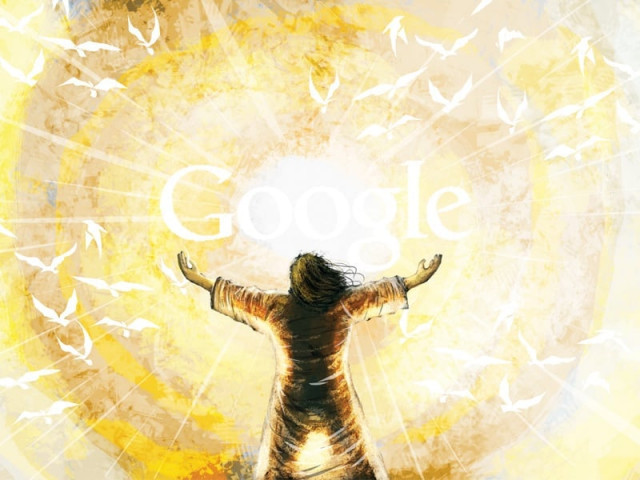Just google it
A group of Google’s ardent fans offer a tongue-in-cheek take on the issue.

Just google it
Matt McPherson, an internet entrepreneur from Liverpool, US, was only half-serious when he founded the “church” in 2006. He named the new religion “Googlism,” defining it as the idea that “the search engine Google is the closest that humankind has ever come to directly experiencing an actual god (as is typically defined).”
Since then, the church has become both famous and infamous across the world and, not entirely unexpectedly, accumulated a large number of hate mail. Support, however, has been slow in coming and so far, the church has amassed only 10,710 “believers” through its website (of course!).
When asked about the low number of followers, the moderator wrote in an email response: “We do not proselytise. If people want to find us, they can use Google Search.”
But while it may not go actively searching for followers, the church allows adherents of various ideologies to join in. “Googlism,” the website says, “does not follow any particular ideology. We welcome all sorts of differing views into our community. Googlism is simply the belief that Google is the closest thing to a ‘god’ our species has ever directly experienced. That’s it.”
The religion is not as unique as it may seem and retains the original eccentricities and duality of conventional religion. The church takes great pains to explain why it believes Google is god and, like conventional religion, it ends up using circular logic to prove so. “Google is all-knowing and omnipresent,” the church’s website www.thechurchofgoogle.org says. “According to Google Trends (a facility of Google Inc. that shows how often a particular search term is entered), the term ‘Google’ is searched far more than the terms ‘God’, ‘Jesus’, ‘Allah’, ‘Buddha’, ‘Christianity’, ‘Islam’, ‘Buddhism’ and ‘Judaism’ combined,” the website further states in support of its assertion.
But even while the church distances itself from a strict ideology, the first commandment of Googlism borders on fundamentalism: “Thou shalt have no other Search Engine before me, neither Yahoo nor Lycos, AltaVista nor Metacrawler. Thou shalt worship only me, and come to Google only for answers.”
The nine other commandments aren’t much better either. “Thou shalt not misspell whilst praying to me,” says commandment number 6, and “Thou shalt not build thy own commercial-free Search Engine,” says commandment number 2. The church pushes to cleanse its adherents of bad behaviour (“Thou shalt not plagiarise or take undue credit for other’s work,” says commandment number 8) and seeks to inculcate the supremacy of knowledge in the minds of its followers (“Thou shalt remember each passing day and use thy time as an opportunity to gain knowledge of the unknown,” says commandment number 4).
Googlism also has its own “holidays” such as the Google Appreciation Day that falls on September 14 every year. It is an official holiday for Googlists as google.com was registered on this day.
But despite these seemingly serious attempts at establishing the Church of Google as a real belief system, doubts and opposition persist.
By his own admission, the moderator of the Church of Google website calls this a “parody religion.” “But,” he writes, “the point it makes is serous or at least interesting to consider.”
“It is funny,” says Sharath Komarraju, a 27-year-old software engineer working for IBM in Bangalore. “I don’t think they’re serious, and it’s all good for a bit of fun.”
For certain others, religion and church should mean serious business. Julia Shane writes on the church’s website: “You say Google is all-knowing? Bah, does it know my life history? Does it know what I’ve been through or my life experiences? I don’t think so. God (not Google) knows these things and helps us every day, Google does not. This is horribly ridiculous!”
But the ‘serious fun’ seems to reflect perfectly well in the prayers that people have written for this church. One reads: “Glory be to Google, As it was in 1998, Is now, And ever shall be, Searching without end, Amen.”
Gautam Buddha once observed: “Just as a candle cannot burn without fire, men cannot live without a spiritual life.” This is possibly the only generation in history that has access to advanced scientific inquiry irrespective of the corner of the world they live in. Perhaps, this desperate search to find the science behind the creator may have led men to Googlism.
And when American writer Robert A Heinlein said, “One man’s theology is another man’s belly laugh,” he couldn’t have been more right.
Published in The Express Tribune, Sunday Magazine, September 2nd, 2012.



















COMMENTS
Comments are moderated and generally will be posted if they are on-topic and not abusive.
For more information, please see our Comments FAQ